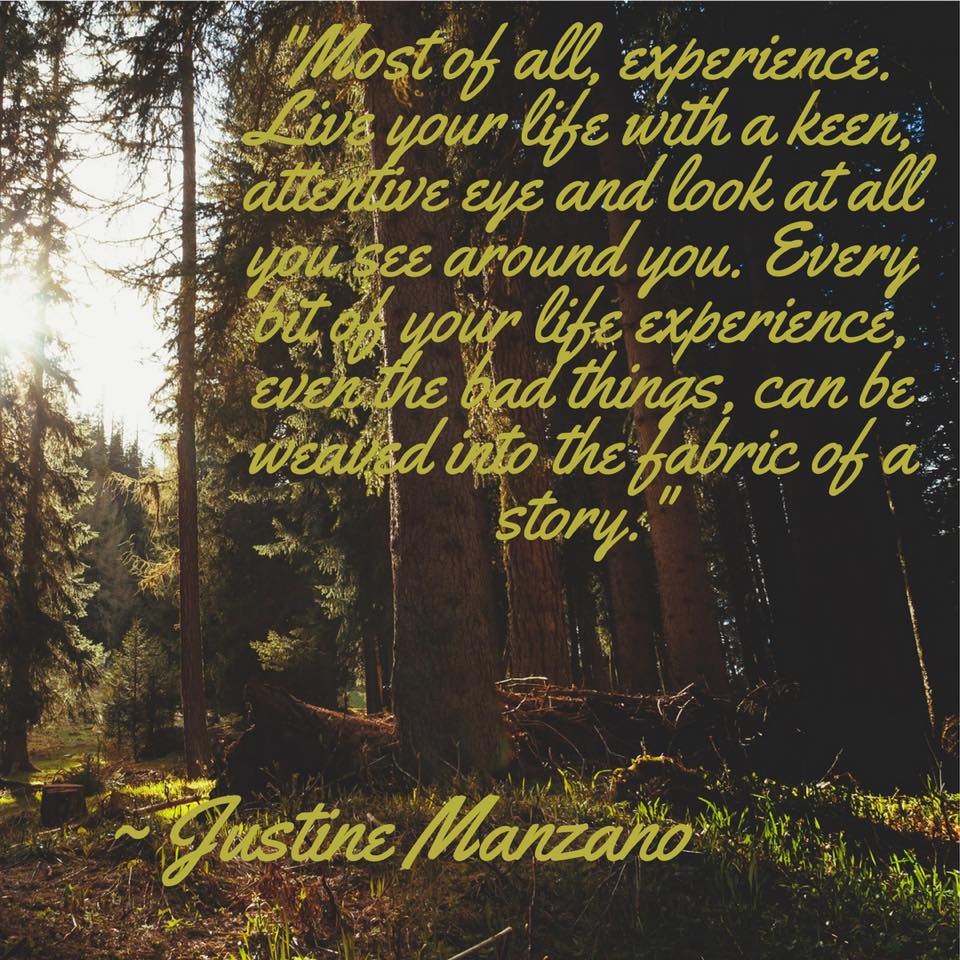
“Where do you get your ideas?” is a question I often get when I’m discussing the nature of my latest story, usually with a person who does not write. Any writer knows that writers don’t know where their ideas come from. In his writing book/memoir “On Writing,” Stephen King said, “There is no Idea Dump, no Story Central, no Island of the Buried Bestsellers; good story ideas seem to come quite literally from nowhere, sailing at you right out of the empty sky: two previously unrelated ideas come together and make something new under the sun. Your job isn’t to find these ideas but to recognize them when they show up.”
It’s true. We have no idea. However, we often remember our line of thinking when we’ve come up with some of our ideas. So where have some of mine come from? How different are their origins? Do some story elements come from different places? Let’s talk.
I’ve had stories arise from concepts I wanted to explore. The Order of the Key was about me trying to create a strong female hero from a geek who has been raised loving superhero media. Lucy Dies in the End was really solely about that concept–I literally just thought about the title and how cool it would be if Lucy herself was the one to say it. I’ve always been drawn to Greek mythology and Aphrodite in particular, which led to Never Say Never. My interest in past lives played into my ideas for the mystery behind Living in the Past.
I’ve had stories arise from dreams. Often when I have these, they play out before me like movies. Legally Insane was about a dream I had about a hidden relationship in a workplace. The present day tale in Living in the Past comes from a very vivid dream I had about a woman strongly connecting with a man and coming home with him, only to stumble into a mystery involving his son.
I’ve had stories arise from mundane reality. Like the lead character in The Order of the Key and Legally Insane, I am a geek. Legally Insane is largely about work in a law firm, which happens to be my day job. The concept of Lucy as Lady Justice in Lucy Dies in the End came from staring at Lady Justice during various court case searches at my job. My parents’ divorce heavily inspires some of the debates on long term relationships in Never Say Never. Dating experiences of my friends helped inspire other portions. And the characters work in an ice cream shop. My first job was at a Carvel. Choosing to Stand Still was a sort of wish fulfillment, regarding a pair of best friends I knew that I thought belonged together–if you’ve read that one, writing it made me realized they were right never to pursue that route.
 I’ve had stories arise from conversations. The backbone of Legally Insane involves the main character visualizing a character from her favorite television series prodding her to be strong in the face of a major life change. This came from a joke that was made when chatting with fandom friends about Jack O’Neill, a wise-cracking character from Stargate SG-1. My friend said, “I wish I could take him around in my pocket to smack some sense into me.” From there, the idea was born.
I’ve had stories arise from conversations. The backbone of Legally Insane involves the main character visualizing a character from her favorite television series prodding her to be strong in the face of a major life change. This came from a joke that was made when chatting with fandom friends about Jack O’Neill, a wise-cracking character from Stargate SG-1. My friend said, “I wish I could take him around in my pocket to smack some sense into me.” From there, the idea was born.
I’ve had stories arise from fears. Without spoilers, the fear of losing a child played into The Keys & Guardians series plan heavily. Things You Can Create arose from the fear of the kinds of torture I could carelessly visit upon my characters. It is, unsurprisingly, my first short story.
I’ve had stories that arise from past trauma. One Percent is an exploration of my descent into anxiety prior to spinal surgery. One Headlight was born of the death of a friend, one who died in a car accident on the way to college. Tunneling dealt with my experiences with dealing with alcoholics. The Peace of Completion and Release dealt with some wish fulfillment regarding the aftermath of my sexual assault. Blue Ice dealt with the issue of domestic violence, handled by a third party, looking in.
What does this tell you? Stories come from so many different places. Some of the things on this list were planned. Some were things that spilled out of me once I began to write. But all of it were things I drew upon to create stories that meant a lot to me.
What does this mean for you? It means inspiration can come from anything. It can be a mix of many things. So collect writing prompts. Collect interesting factoids. File away tidbits about the people you meet. But most of all, experience. Live your life with a keen, attentive eye and look at all you see around you. Every bit of your life experience, even the bad things can be weaved into the fabric of a story.
So how do you find the elusive creature known as inspiration? The answer is simple. Live.
